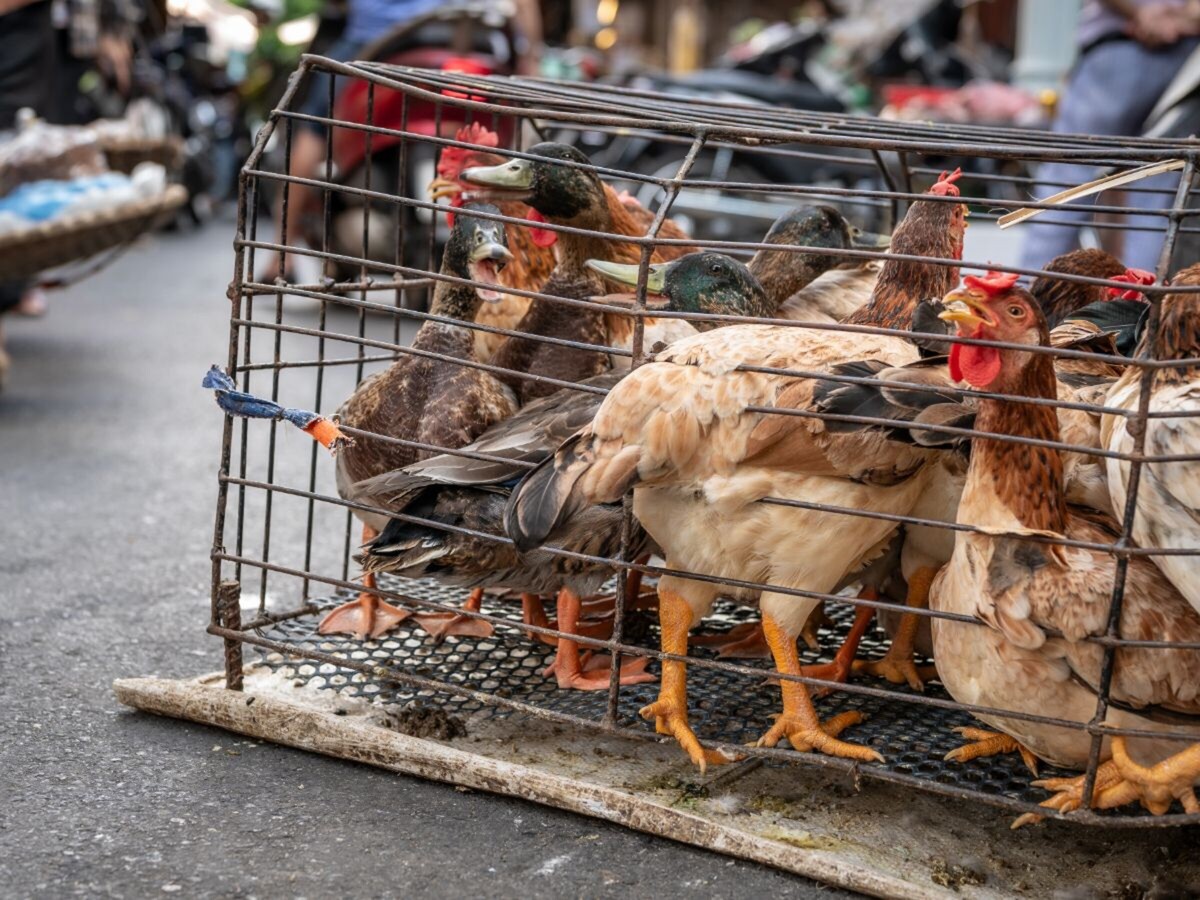Avian Influenza Detected in Multiple New Jersey Live Bird Markets
Cases Confirmed in Union, Hudson, and Mercer Counties; Officials Urge Precautionary Measures
State and federal health authorities have confirmed multiple cases of Highly Pathogenic Avian Influenza (HPAI) in live bird markets across New Jersey, marking the first domestic poultry cases in the state since 2023. The New Jersey Department of Agriculture (NJDA) and the United States Department of Agriculture (USDA) have detected infections in facilities in Union, Hudson, and Mercer counties, triggering quarantines and biosecurity measures to curb the spread of the disease.
The initial outbreak was reported on February 21, 2025, when a live bird market in Union County tested positive for HPAI during routine surveillance. Further testing on March 4 and March 5 identified additional cases in two Hudson County markets and one in Mercer County. In response, officials have quarantined all affected locations and mandated thorough cleaning and disinfection before reopening.
“I want to applaud the live bird markets taking necessary precautions which led to the quick identification of the illness in birds,” NJDA Secretary Ed Wengryn said. “By reporting this to us immediately, we were able to prevent the sale of any sick birds to the public.”
Low Risk to Public, but High Concern for Poultry Industry
According to the Centers for Disease Control and Prevention (CDC) and state health officials, the risk of HPAI to the general public remains low, with no reported instances of sustained human-to-human transmission. However, HPAI is highly contagious and often fatal among poultry.
The infected markets did not sell potentially infected poultry to consumers, according to the NJDA, reducing concerns about food safety. Officials emphasize that properly cooked poultry and eggs—heated to at least 165 degrees Fahrenheit—are safe to consume.
The New Jersey Department of Health is monitoring individuals who may have been exposed at the affected markets. Workers in contact with infected birds are being assessed for symptoms, which can include fever, respiratory distress, and eye irritation. Any symptomatic individuals will undergo immediate testing for HPAI.
Surveillance and Containment Measures
The Union County case was detected during routine testing at the New Jersey Animal Health Diagnostic Laboratory, part of ongoing surveillance efforts following a recent HPAI outbreak in New York City live bird markets. Infected birds in the Hudson and Mercer County markets were also identified through regular inspections.
State and federal agencies are coordinating efforts to disinfect the impacted markets, enforce biosecurity protocols, and prevent further spread. Each market will remain closed for a set period before being restocked.
Additionally, New Jersey poultry farms and live bird markets have been advised to heighten their biosecurity measures, including:
- Restricting exposure of domestic birds to wild birds
- Using dedicated clothing and footwear when handling poultry
- Limiting visitors and interactions with other flocks
- Avoiding shared equipment unless properly disinfected
Personal protective equipment (PPE) is available for poultry workers at Rutgers Cooperative Extension offices statewide.
“The live bird market operators have been fully compliant with our requests and have taken the necessary steps in efforts to prevent avian influenza in their businesses,” NJDA Secretary Ed Wengryn said. “This shows how prevalent this disease is. We urge all poultry and bird owners to take full precautions by following the necessary biosecurity recommendations.”
Wild Bird Population Also Impacted
Beyond live bird markets, wild bird populations across New Jersey are experiencing an increase in HPAI cases, with state and federal agencies responding to reported bird die-offs. The New Jersey Department of Environmental Protection (DEP) and USDA’s Animal and Plant Health Inspection Service are leading efforts to track infections and ensure safe removal of dead birds.
Officials urge residents not to handle sick or dead wild birds, as they may carry the virus. If removal is necessary, individuals should wear gloves, masks, and eye protection, and dispose of birds using a double-bagged, sealed method in an outdoor trash bin. Disinfectant solutions—such as diluted bleach—should be used on any tools or surfaces that come in contact with bird carcasses.
Sick or dead wild birds can be reported to the DEP hotline at 877-WARN-DEP (877-927-6337).
What Poultry Owners and the Public Should Know
With HPAI cases on the rise, poultry owners are encouraged to monitor their flocks for symptoms, including:
- Sudden death
- Respiratory distress (coughing, sneezing, nasal discharge)
- Swelling around the eyes
- Decreased egg production and lethargy
If HPAI is suspected in poultry, owners must immediately contact the New Jersey Department of Agriculture, Division of Animal Health at 609-671-6400.
If a human infection is suspected, individuals should contact their local health department (www.localhealth.nj.gov) for further guidance.
For more information on avian influenza and biosecurity resources, visit:
As officials continue to track and contain the outbreak, they emphasize the importance of vigilance, precautionary measures, and timely reporting to safeguard both poultry operations and public health.















